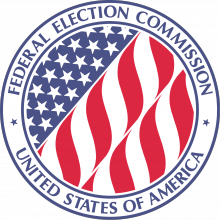 The Federal Election Commission (FEC) is holding a hearing today to receive public feedback on whether it should create new rules regulating political speech, including political speech on the Internet that one commissioner warned could affect blogs, YouTube videos and even websites like the Drudge Report.
The Federal Election Commission (FEC) is holding a hearing today to receive public feedback on whether it should create new rules regulating political speech, including political speech on the Internet that one commissioner warned could affect blogs, YouTube videos and even websites like the Drudge Report.
The hearing is a response to the U.S. Supreme Court’s ruling in McCutcheon v. FEC last year, which struck down the FEC’s previous cap on aggregate campaign contributions from a single donor in an election cycle.
Before the decision, individuals were limited to a combined total of $46,200 in contributions to all federal candidates, and $70,800 to federal political action committees and parties.
Individuals are no longer restricted by aggregate limits, which Chief Justice John Roberts said “intrude without justification on a citizen’s ability to exercise ‘the most fundamental First Amendment activities’.”
They may now “contribute up to $2,600 per election to a federal candidate, $10,000 per calendar year to a state party committee, $32,400 per calendar year to a national party committee, and $5,000 per calendar year to a PAC [political action committee],” according to the FEC.
The commission, which consists of three Republican and three Democratic members, last considered such regulations in 2005. However, intense opposition from First Amendment groups resulted in rules that were limited to paid advertisements from political campaigns, parties, and PACs.
This time around, organizations like the Electronic Frontier Foundation have warned that some Democrats on the commission would like to impose much more burdensome regulations that could serve as the equivalent of spending caps in restricting political speech.
Last October, FEC Chairwoman Ann Ravel issued a statement in which she complained that the agency was not doing enough to monitor activity on the Internet.
“Some of my colleagues seem to believe that the same political message that would require disclosure if run on television should be categorically exempt from the same requirements when placed on the Internet alone. As a matter of policy, this simply does not make sense,” Ravel said.
However, the commission’s three Republican members – Lee Goodman, Caroline Hunter, and Matthew Petersen – responded to Ravel’s comments in a joint statement.
“Despite the Internet’s growing importance as a tool for all citizens to engage in political debate, and notwithstanding this Commission’s promise to take a ‘restrained regulatory approach’ with respect to online political activity, [Ravel] apparently believes the time has come to impose greater regulation on political speech over the Internet,” the group wrote.
According to Commissioner Goodman, who served as chairman of the FEC last year, regulation of content placed on the Internet is a very real possibility.
“The commission has seen proposals to regulate even issue advocacy referencing federal candidates that is disseminated on the Internet,” Goodman told CNSNews.com.
“That could reach YouTube videos, blogs, and websites like [the] Drudge Report,” he warned.
Among those testifying at Wednesday’s hearing, three former Republican commissioners – Donald McGahn, David Mason, and Hans Von Spakovsky – are scheduled to speak against further controls from the FEC.
The Brennan Center for Justice, Campaign Legal Center, League of Women Voters, Public Citizen, and U.S. PIRG are among those expected to testify in favor of more government regulations.
Zephyr Teachout, a Fordham University professor who will also be testifying at Wednesday’s hearing, disputed the idea that the agency would follow Ravel’s dictate.
“This seems to me to be a major and silly political distraction, because this hearing is about what the FEC should be doing around McCutcheon. With the decision, along with the Citizens United decision, there are all these new opportunities for patronage politics… I’m calling hogwash [about the idea that regulations will be imposed on online content],” Teachout told CNSNews.com.
Democrats have long supported regulating political content on the Internet, but have generally sought to do so using the Federal Communications Commission (FCC).
In 2009, a staff member for former Rep. Henry Waxman (D‑CA) spoke about the possibility of the FCC passing regulations that would affect sites like Drudge.
“Does one heavily trafficked Internet site present one side of an issue and not link to sites that present alternative views?” the staff member asked. “These are some of the questions [Waxman] is thinking about right now, and we are going to have an FCC that will finally have the people in place to answer them.”
However, with the FCC set to vote on February 26 on “net neutrality” rules under the auspices of preventing private Internet operators from imposing controls, the political focus behind the push to regulate online political speech has shifted largely to the FEC.
The political affiliation of the FEC chairman works on a rotating basis, with the two major political parties trading off each year. Since each party retains an equal share of members on the commission, any new rules adopted by the commission would require bipartisan support.




